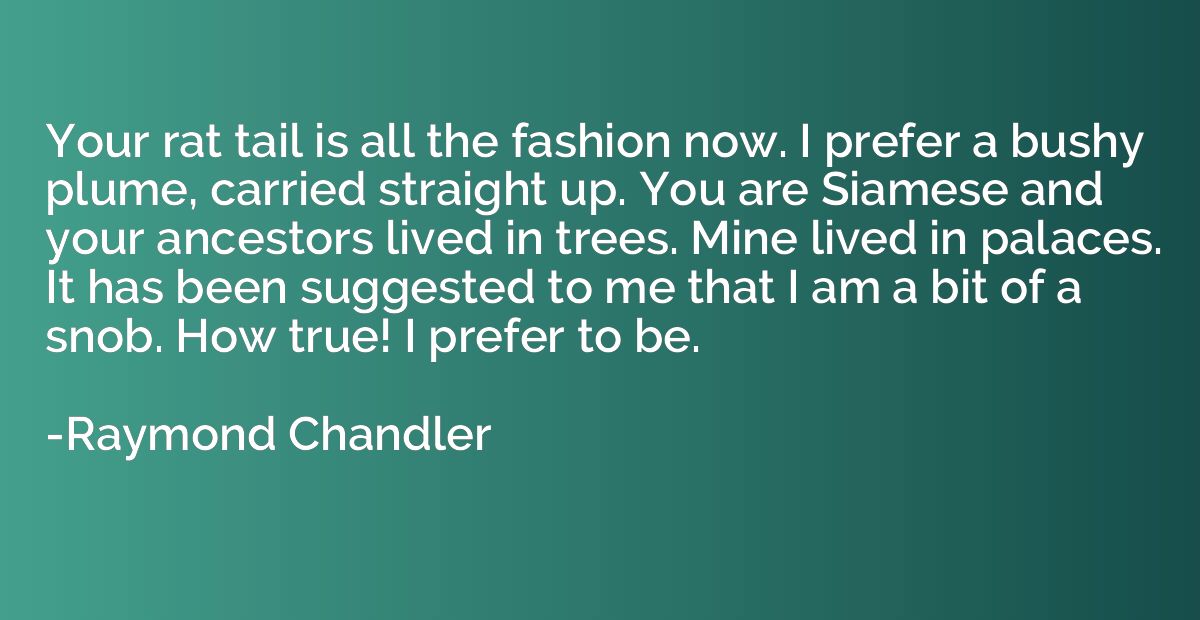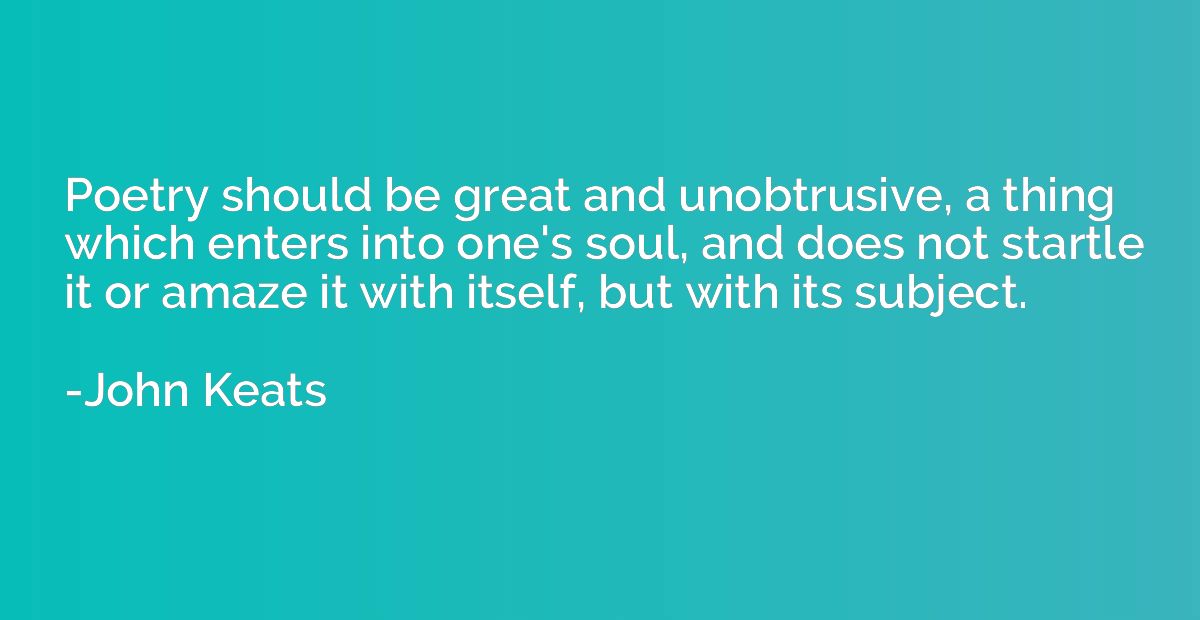Quote by Raymond Chandler
Your rat tail is all the fashion now. I prefer a bushy plume, carried straight up. You are Siamese and your ancestors lived in trees. Mine lived in palaces. It has been suggested to me that I am a bit of a snob. How true! I prefer to be.

Summary
This quote is a humorous expression by a character asserting their preference for a specific appearance and background. The speaker describes their distinctiveness by contrasting their "bushy plume" with the fashionable "rat tail", implying a sense of superiority. The mention of their Siamese origin and ancestor living in palaces highlights their supposed aristocratic lineage. The speaker embraces the suggestion of being a snob, proudly embracing their own unique and refined tastes. Overall, this quote playfully emphasizes individuality and personal preferences while embracing an exaggerated sense of superiority.














